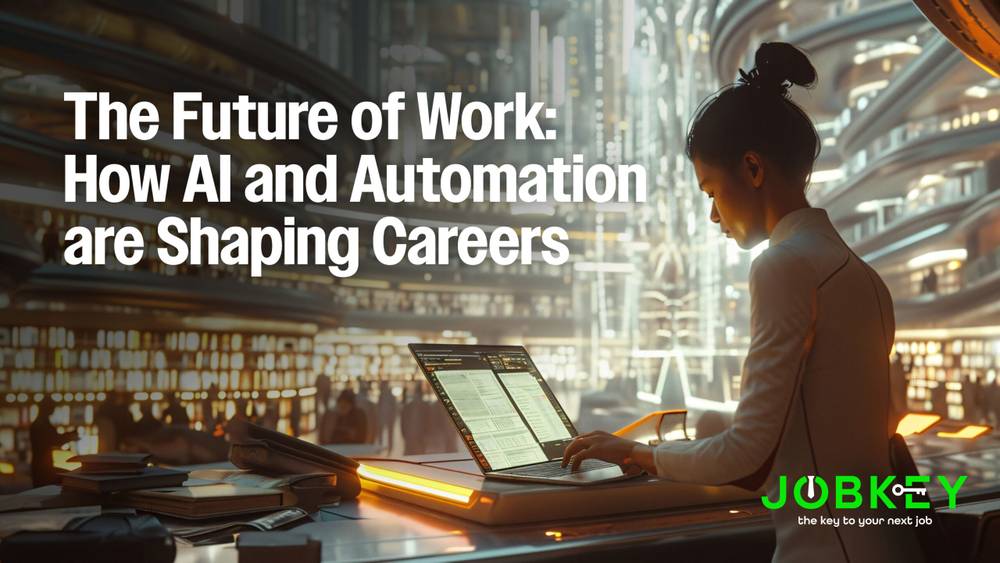
The future of work is undergoing a profound transformation, driven by the rapid advancements in artificial intelligence (AI) and automation technologies. These innovations are reshaping industries, redefining job roles, and altering the skills required for success in the modern workforce. As AI systems become increasingly capable of performing tasks once thought exclusive to humans, from data analysis to complex decision-making, the nature of work is shifting. Automation, in particular, is streamlining processes and increasing efficiency, leading to significant changes in how businesses operate and the types of jobs available.
This evolution presents both opportunities and challenges. On one hand, AI and automation can enhance productivity, reduce costs, and create new industries and job roles that didn’t exist before. On the other hand, they can also displace certain types of jobs, leading to concerns about unemployment and the need for workers to adapt to new skill requirements. The future of work, therefore, is not just about technological innovation but also about how society, businesses, and individuals respond to these changes.
Here are some key ways in which AI and automation are impacting careers:
1. Job Transformation and Creation
- Automation of Routine Tasks: AI and robotics are increasingly capable of handling repetitive and mundane tasks, which can lead to the automation of jobs in sectors like manufacturing, logistics, and customer service. However, this also frees up human workers to focus on more complex and creative tasks.
- Emergence of New Roles: As technology evolves, new job roles are being created that didn’t exist before. For example, fields like data science, AI ethics, and cybersecurity are growing rapidly. There is also increasing demand for professionals who can develop, manage, and maintain AI systems.
2. Skill Shift
- Demand for Digital Skills: The rise of AI and automation requires workers to possess strong digital skills. Proficiency in areas like programming, data analysis, and digital literacy is becoming essential.
- Soft Skills: While technical skills are crucial, soft skills such as creativity, emotional intelligence, and adaptability are also becoming more valuable. These human-centric skills complement technology and are difficult to automate.
3. Workplace Dynamics and Flexibility
- Remote Work and Gig Economy: AI-powered tools enable remote work and contribute to the growth of the gig economy. Platforms that match freelancers with job opportunities, driven by algorithms, are becoming more common.
- AI-Augmented Decision Making: AI is increasingly being used to assist in decision-making processes, from hiring to strategic business decisions. This can lead to more data-driven and efficient outcomes.
4. Ethical and Societal Considerations
- Job Displacement and Inequality: One of the major concerns with automation is job displacement. Certain sectors and roles are more vulnerable to being automated, which can lead to economic disparities and increased inequality.
- Ethical AI Development: There is a growing need for ethical frameworks in the development and deployment of AI. This includes addressing issues such as bias in algorithms, data privacy, and ensuring that AI systems are transparent and accountable.
5. Continuous Learning and Adaptation
- Lifelong Learning: With the rapid pace of technological change, continuous learning and upskilling are becoming essential. Educational institutions and companies are increasingly offering training programs to help workers adapt to new technologies.
- Reskilling and Upskilling Initiatives: Governments, businesses, and educational institutions are focusing on reskilling and upskilling initiatives to prepare the workforce for the changes brought by AI and automation.

The impact of AI and automation on the future of work is profound and multifaceted. While these technologies offer numerous opportunities for innovation and efficiency, they also pose challenges that need to be addressed to ensure a fair and inclusive future workforce. Adaptability, continuous learning, and a focus on ethical considerations will be crucial as we navigate this evolving landscape.





